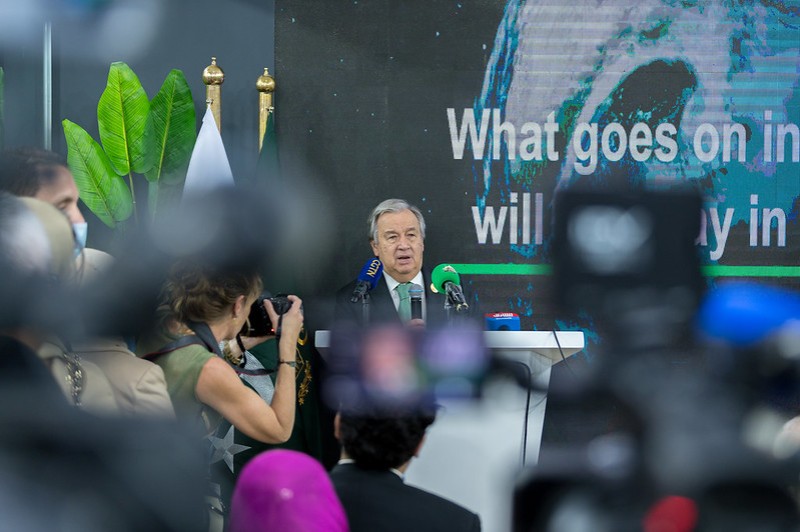* By Peter Pavlovic
COP27 is the moment to acknowledge critical facts about the state of the world. According to a recent report of the World Meteorological Organisation, concentrations of greenhouse gases reached record highs in 2021. The increase continues in 2022. The global mean temperature in 2022 is currently estimated to be 1.15 ± 0.13 °C above the 1850-1900 average. The eight years from 2015 to 2022 are likely to be the eight warmest years on record.
In Europe, even if some progress has been made and a number of right decisions adopted, these are still not sufficient to uphold the target of keeping global warming below 1.5 °C. Reports confirm that only two European countries, UK and Norway, are close to reaching this target.
The EU plans are a step in the right direction. Efforts need to continue. The EU must ensure the communicated ambitions are implemented and transformed into reality.
The global situation raises additional concerns. As the UN states, even if all countries would fulfill their announced climate pledges, the temperature would still increase by 2.5 °C before the end of the century, which is one degree above the level agreed in Paris in 2015.
The optimism demonstrated in Paris has been replaced by disturbance and irritation. The war in Ukraine has undermined the atmosphere of global cooperation and caused waves of energy concerns across the continent and beyond. This leads not only to an increasing attraction towards renewable energy resources but, at the same time, to the increased use of coal. Consumption of coal, especially in Asia and notably in China, is booming.
COP27 is first and foremost about re-establishing trust in the process of global cooperation in tackling climate change. Countries in Africa and in the developing world have contributed the least to the current critical situation. On the other hand, most of them are exposed to the devastating impacts of climate change, including food shortages that consequently lead to migration.
Industrialised countries of the world pledged to contribute 100 billion USD annually to the climate fund to compensate for climate-caused damage and to be spent on the adaptation to climate change. This has been up until today not been fully delivered. Recent devastating floods in Pakistan remind us all of the potential impacts of climate change and the need to face it on a global scale with the complementary use of several parallel instruments including the reduction of GHG production, efforts for adaptation, and guaranteeing adequate finance.
The UN General Secretary Antonio Guterres warned in his opening statement at COP 27: "We are in the fight of our lives. And we are losing. Greenhouse gas emissions keep growing. Global temperatures keep rising. And our planet is fast approaching tipping points that will make climate chaos irreversible. We are on a highway to climate hell with our foot still on the accelerator."
The key term in COP 27 is "implementation". The UN General Secretary called the participants in COP27 to strengthen their efforts towards cooperation, to re-establish trust, and to what he called "a historic Pact between developed and emerging economies – a Climate Solidarity Pact.’ He added: ‘This is our only hope of meeting our climate goals. Humanity has a choice: cooperate or perish. It is either a Climate Solidarity Pact – or a Collective Suicide Pact."
Churches and faith communities are visible and present at COP. Along with calling for justice and solidarity, they underline that any efforts in addressing climate change can be sustainable only if they are rooted in minds and hearts. Otherwise, they are expendable and prone to be changed with the next political generation. We have forgotten how to live in harmony with nature. Therefore, a change of mindset is an essential part of this process.
*Rev. Dr Peter Pavlovic, from CEC and ECEN, is a member of the ecumenical team, led by the WCC at COP27 in Egypt.
